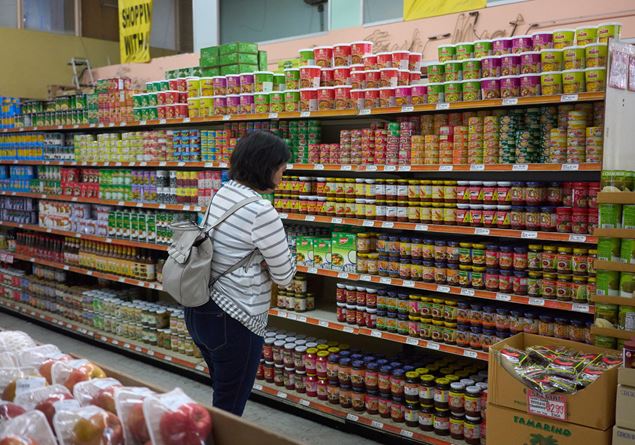Andrea Monticini.
Trump, the duties on imported goods applied tout court to about sixty countries that entertain trade with the United States (20%to Europe) create damage to the global economy. While deciding on how to move on to action, and whether to move on to action or wait, bags in Europe and Asia collapse. America does not seem to have learned Reagan’s lesson (“duties bring recession and deep red markets”). We talk about it with Andrea Monticini, professor of Financial Econometry at the Catholic University of Milan and one of the greatest experts in customs tariffs.
Professor, why did the financial markets collapse?
«Because there is uncertainty, nobody reasonably believes that those duties will remain standing as they have been imposed, but at the same time we don’t even know what will happen. Trump’s decision has been completely unexpected in two aspects: the intensity, because they are very high duties, and the extension, because Trump has decided to impose them on many countries. The duties are expected, which are a tax on the American consumer (it is he who buys the products subjected to duty), cause an increase in inflation in that country. Despite what Trump says, putting a duty on importing means that those goods to the American consumer cost more. In Europe, however, the consequence of the duty is that less products in the United States will be sold, so there will be less profits for companies and consequently less work, therefore less employment ».
What do savers risk?
«The actions have showy value losses. But those who have government bonds or bonds must not have serious concern because they do not restore this shock ».
Will there be no increase in Europeans?
«In this phase still no. Only if the European Union will decide to put counter-to-date on the assets that we will import from the United States will we have an inflation imported by us too. However, the economic cycle is slowing down. It depends on how the bargaining will go: Will Europe stand still or give life to a chain commercial war? In uncertainty, companies will not make investments ».
What is the best solution?
«The best solution is not to respond to limit the damage, also because Trump’s decision is so strong that it will cause great dissent in the United States, precisely because of the discomfort it will create in American consumers. My reasonable expectation is that from here to the summer those duties, as they were presented on April 2, will certainly be reviewed. The European approach seems to me that it is to renegotiate its entity by threatening counter-tooth. Or you could respond by doing exactly the opposite, that is, with agreements with as many countries as possible to have a free trade, excluding the United States, in order to facilitate for Italian companies the replacement of the American market with other markets, which is also not simple “.
With which countries? Perhaps China, which was hit with a maxi rate of 104%?
«China has produced enough similar to European ones and therefore it is probably the country to be careful as possible. I think, however, in India, Vietnam, South Korea, Japan ».
Do the United States export from us less than we export to them?
“True regarding goods, but not for services.”
Are the duties on the competition between businesses?
«Yes, there is an old phrase by Milton Friedman who said that the duties protect against low prices. The duties can make sense in some periods, but they must be very precise, specific and with a clear and non -clear goal, as Trump did, the result of a unrealistic design of being able to control all the economic dynamics to make the situation turn in their favor ».
What is Trump’s goal?
The stated goal is to report companies to produce directly in the United States, to have a domestic production of that good affected by the duty, but it is an obviously inconsistent goal for a couple of reasons: the labor there is particularly scarce and immigration should be favored, instead we go towards an opposite policy, moreover there is a need for raw materials, for example the steel, which however was one of the first assets on which Trump put the duty. But here another problem is triggered: if the goal is to report in the USA the production you cannot think of going to deal with the duties, possibly lowering them, to stipulate a new agreement: the duty must remain from here to the next 15-20 years to ensure that for a company it becomes convenient to go to that market to produce “.
Does not uncertainty about the future pushes companies to go to produce in the United States?
“Exactly. The administrations will change, the future of pure duties and moving a company is complicated, which is why if it already has a factory there will rely on that to expand the production, but otherwise it does not. For example, if we have to produce syringes for insulin and in the United States there is no labor, that competence, that raw material, nobody will set up a factory from scratch ».
Do Trump think you can cover American debt with the duties?
«American debt is financed with world savings. The American administration in the next four years has a large quantity of expiring debt securities and needs to be bought: this is another event that may be blackmade by Europe. Straptor accounts were made: the American deficit is very high and one cannot think of covering it with duties that have a relatively low revenue. And then there is a background inconsistency: Trump how can he think of taking a hundred revenue from the duties to cover a deficit of one hundred if companies bring production to the United States? That duty will no longer be imposed. That’s why there is volatility in the markets: it is not clear where you will go to parry ».
But are the duties mutual as Trump says?
«The way of calculation is imaginative, made to pollute the debate. Some of the points could also be true, on some themes there could be duties put as an asymmetrical extent between Europe and the United States, but on some specific assets and of amounts clearly lower than that presented by Trump. He substantially calculated imports less export divided the import: this was the measure of the duty ».
Reagan has always not recommended protectionism …
«Globalization brings growth and wellness, we know by David Ricardo forward. What is the wrong point in the last thirty years? That we didn’t worry about knowing who this growth went, how it was divided. When it is said that there is wellness it does not mean that everyone is better, but that overall it is better, there are certainly there are worse population bands. Evidently in the globalization process the redistribution of this general wealth was not taken too much into consideration, it was not fair. That’s where the gear did not work ».










